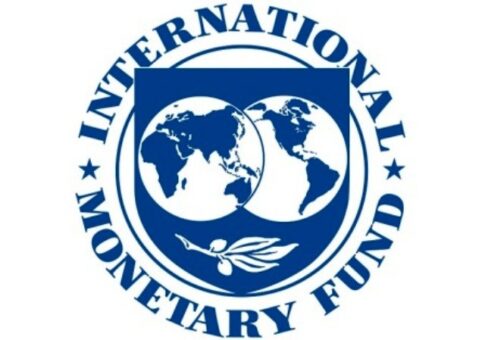KARACHI: The Pakistani rupee has overshot temporarily but it is expected to appreciate in next few months, said a joint statement issued on Sunday late night by the Finance Ministry (FinMin) and the State Bank of Pakistan (SBP).
According to the statement the rupee has overshot temporarily but it is expected to appreciate in line with fundamentals over the next few months.
The statement strongly rejected rumors that a particular level of the exchange rate has been agreed with the IMF are completely unfounded. “The exchange rate is flexible and market-determined, and will remain so, but any disorderly movements are being countered,” it added.
READ MORE: Pakistani rupee falls 36% to Saudi Riyal in seven months
The statement pointed out around half of the rupee depreciation since December 2021 can be attributed to the global surge in the US dollar, following historic tightening by the Federal Reserve and heightened risk aversion.
“Of the remaining half, some is driven by domestic fundamentals. In particular, the widening of the current account deficit, especially in the last few months,” it added.
As noted above, the deficit is expected to narrow going forward as the temporary surge in the import bill is brought under control. As this happens, the Rupee is expected to gradually strengthen.
The remaining depreciation has been overdone and driven by sentiment. The Rupee has overshot due to concerns about domestic politics and the IMF program.
This uncertainty is being resolved, such that the sentiment-driven part of the Rupee depreciation will also unwind over the coming period.
Where the market has become disorderly, the State Bank has continued to step in through sales of US dollars to calm the markets and will continue to do so, as needed in the future.
READ MORE: Rupee fall to continue till IMF fund realization: Pakistan’s top bank
Strong steps to counter any speculation have also been taken, including close monitoring and inspections of banks and exchange companies. Further additional measures will be taken as situation warrants.
Going forward, as the current account deficit is curtailed and sentiment improves, we fully expect the Rupee to appreciate. Indeed, this was the experience during the beginning of the IMF program in 2019, when the Rupee strengthened considerably after a period of weakness in the lead-up to the program.
Clearly, the Rupee can overshoot temporarily as it has done recently. However, it moves both ways over time. We expect this pattern to re-assert itself in the coming period. As a result, the Rupee should strengthen in line with improved fundamentals in the form of a smaller current account deficit as well as stronger sentiment.
Pakistan’s problems are temporary and are being forcefully addressed. “Pakistan’s foreign exchange reserves have fallen since February as foreign exchange inflows have been outpaced by outflows.”
The inflows mainly comprise of multilateral loans from the IMF, World Bank and ADB; bilateral assistance in the form of deposits and loans from friendly countries like China, Saudi Arabia, and the UAE; and commercial borrowing from foreign banks and through the issuance of Eurobonds and Sukuks.
The paucity of inflows has happened in large part due to the delay in completing the next review of the IMF program, which has lingered since February due to policy slippages.
READ MORE: Pakistani rupee crashes 17% against dollar in July 2022
Meanwhile, on the outflows side, debt servicing on foreign borrowing has continued as repayments on these debts have been coming due over this period.
At the same time, the exchange rate has come under significant pressure, especially since mid-June. It has been driven by general US dollar tightening, a rise in the current account deficit (exacerbated by a heavy energy import bill in June), the decline in foreign exchange reserves, and worsening sentiment due to uncertainty about the IMF program and domestic politics.
However, important developments have happened recently that will address both of these temporary issues. On July 13, the critical milestone of a staff-level agreement on completing the next IMF review was reached. As of today, all prior actions for completing the review have been met and the formal Board meeting to disburse the next tranche of $1.2 billion is expected in a couple of weeks.
At the same time, macroeconomic policies—both fiscal policy and monetary policy—have been appropriately tightened to reduce demand-led pressures and rein in the current account deficit. Finally, the government has clearly announced that it intends to serve out the rest of its term until October 2023 and is ready to implement all the conditions agreed with the Fund over the remaining 12 months of the IMF program.
In FY23, Pakistan’s gross financing needs will be more than fully met under the on-going IMF program.
The financing needs stem from a current account deficit of around $10 billion and principal repayments on external debt of around $24 billion.
READ MORE: Pakistan interbank rupee ends Rs239.37 to dollar on July 29, 2022
In order to bolster Pakistan’s foreign exchange reserves position, it is important for Pakistan to be slightly over-financed relative to these needs.
As a result, an extra cushion of $4 billion is planned over the next 12 months. This funding commitment is being arranged through a number of different channels, including from friendly countries that helped Pakistan in a similar way at the beginning of the IMF program in June 2019.
Important measures have been taken to contain the current account deficit.
In addition to high global commodity prices, the large current account deficit in FY22 was driven by rapid domestic demand (growth reached almost 6 percent for two consecutive years leading to overheating of the economy), artificially low domestic energy prices due to the February subsidy package, an unbudgeted and procyclical fiscal expansion, and heavy energy imports in June to minimize load-shedding and build inventories.
To contain this deficit going forward, the policy rate was raised by 800 basis points, the energy subsidy package has been reversed, and the FY23 budget targets a consolidation of nearly 2.5 percent of GDP, centered on tax increases while protecting the most vulnerable. This will help cool domestic demand, including for fuel and electricity.
In addition, temporary administrative measures have been taken to contain the import bill, including requiring prior approval before importing automobiles, mobile phones and machinery. These measures will be eased as the current account deficit shrinks in the coming months.
These measures are working: the import bill fell significantly in July, as energy imports have declined and non-energy imports continue to moderate.
Foreign exchange payments in July were significantly lower than in June. This is true for both oil and non-oil payments. Altogether, payments were a sustainable $6.1 billion in July compared to $7.9 billion in June.
The latest trade data indicate that non-oil imports continue to fall. Specifically, non-oil imports fell by 5.7 percent quarter-on-quarter during Q4 FY22. They are expected to reduce further going forward.
Looking ahead, a considerable slowdown has been witnessed in LC opening in recent weeks, again for both oil as well as non-oil commodities. Based on market reports, there was an 11% month-on-month decline in Oil Marketing Companies sales volume in June.
After the surge in energy imports in June, a stock of diesel and furnace oil sufficient for 5 and 8 weeks, respectively, is now available in the country, much higher than the normal range of 2 to 4 weeks in the past. This implies a lower need for petroleum imports going forward.
With the recent rains and storage of water in the dams, hydroelectricity is also likely to increase and need to generate electricity on imported fuel is expected to decline going forward.
As a result of these trends, the import bill is likely to shrink going forward and should begin to manifest itself more forcefully in lower FX payments over the next 1-2 months.
Overall, imports are expected to decline in coming months due to a decline in global commodity prices, the higher oil stock, the unfolding impact of higher domestic prices of petroleum products, adjustments in electricity and gas tariffs, the removal of tax exemptions under the FY23 budget, administrative measures taken to curtail imports, and the lagged impact of the monetary and fiscal tightening that has been undertaken.





